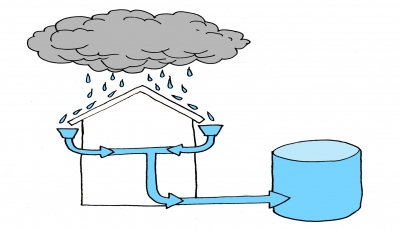The Vital Function of Appropriate Liquid Waste Removal Strategies in Waste Administration
In the world of waste monitoring, the significance of utilizing proper fluid waste removal methods can not be overstated. The intricate web of interconnected ecological, health, and safety and security considerations rests on the reliable monitoring of liquid waste. From securing our ecological communities against contamination to supporting public health and wellness requirements, the appropriate disposal of fluid waste plays a crucial function in maintaining a healthy and sustainable atmosphere. This pivotal function extends past simple waste elimination, impacting a wide range of industries and facets of our day-to-day lives. It is within this framework that the execution of audio fluid waste elimination methods stands as a cornerstone of responsible waste management practices.
Significance of Proper Fluid Waste Removal
Why is proper fluid waste elimination crucial in maintaining public and environmental health standards? Proper liquid waste removal is crucial for safeguarding the setting and promoting public health criteria.
Ecological Advantages of Reliable Methods
Implementing efficient liquid waste removal strategies not only safeguards the environment however additionally plays an essential role in preserving public wellness criteria. By using proper strategies, such as innovative filtering systems and accountable disposal techniques, the environmental advantages are considerable. Among the primary benefits is the prevention of contamination of natural water sources. Inappropriate disposal of liquid waste can cause toxins permeating right into the dirt and at some point reaching groundwater reservoirs, impacting both human wellness and communities.
In addition, efficient liquid waste elimination methods aid mitigate the threat of waterborne diseases. By making sure that harmful materials are not released into water bodies, the spread of diseases brought on by polluted water can be minimized. Correct waste administration practices add to the conservation of aquatic life. Toxic chemicals in liquid waste can have destructive impacts on marine and fresh water microorganisms, interfering with communities and biodiversity.
Wellness Implications of Inadequate Removal
The damaging health and wellness ramifications connected with poor liquid waste elimination highlight the essential significance of appropriate disposal methods and effective administration techniques. Incorrect removal of fluid waste can result in the contamination of water resources, positioning serious health risks to both people and wild animals. When fluid waste containing harmful chemicals, pathogens, or various other pollutants is not adequately eliminated and treated, it can permeate into groundwater, rivers, and seas, jeopardizing the top quality of alcohol consumption water and marine ecosystems.
Exposure to contaminated water as a result of poor liquid waste elimination can lead to various wellness troubles, including stomach illnesses, skin infections, breathing concerns, and much more extreme conditions such as body organ damage or neurological problems. Additionally, the launch of untreated liquid waste into the setting can contribute to the spread of waterborne conditions, developing public health and wellness dilemmas that call for significant sources to resolve.
As a result, executing correct liquid waste removal methods is important to securing public wellness and maintaining the integrity of ecological communities. Industrial waste water treatment. By focusing on effective waste administration practices, we can alleviate the wellness risks associated with poor liquid waste removal and promote a healthier environment for all
Function in Protecting Against Water Contamination
Effective fluid waste removal methods play a critical duty in avoiding water contamination and guarding public health. Inappropriate disposal of fluid waste, such as neglected sewer or commercial effluents, can lead to the contamination of water sources, posing severe risks to human wellness and the setting. When liquid waste is not sufficiently removed and dealt with, hazardous materials can permeate into groundwater, rivers, and oceans, polluting alcohol consumption water materials and marine ecosystems.
Polluted water can lug a series of toxins, consisting of pathogens, hefty metals, and chemicals, that have the possible to create waterborne conditions, ecological damages, and long-term health and wellness effects in humans and wildlife. Appropriate liquid waste removal techniques, such as wastewater treatment plants, septic systems, and commercial effluent treatment centers, are vital for removing or reducing the effects of harmful contaminants prior to they can go into water bodies.
Ensuring Safe Disposal Practices
Guaranteeing appropriate disposal practices for fluid waste is crucial to shield water sources review and public wellness from contamination Read Full Article risks. Safe disposal methods entail adhering to standards and regulations stated by environmental companies to decrease the impact of fluid waste on the atmosphere. Correct control and storage of liquid waste are critical to prevent leaks or spills that might leak right into the soil and contaminate groundwater resources. Implementing efficient treatment methods, such as filtering or chemical processes, before disposal can additionally dramatically lower the hazardous impacts of liquid waste on the environment.

Conclusion
In conclusion, correct liquid waste removal methods play an important function in waste monitoring by avoiding environmental contamination and guarding public health and wellness. Efficient elimination methods guarantee the risk-free disposal of liquid waste, lessening the unfavorable impact on ecosystems and water resources. It is imperative for markets and people to embrace responsible practices to reduce the unsafe results of improper fluid waste disposal.
In the realm of waste administration, the relevance of utilizing proper liquid waste removal approaches can not be overemphasized. It is within this framework that the execution of sound fluid waste elimination methods stands as a keystone of accountable waste monitoring techniques.

Comments on “Specialist Guidance on Reclaim Waste Liquid Waste Removal and Industrial Waste Water Treatment”